
The Enchanting Highlands of Piggs Peak
Nestled in the lush highlands of Eswatini, Piggs Peak is a charming town that promises an escape into nature's serene beauty. Known for its breathtaking landscapes, this destination is a haven for nature lovers and adventure seekers alike. The town's history is steeped in the gold mining era, adding a layer of rich cultural heritage to your visit. Surrounded by verdant forests and rolling hills, Piggs Peak offers an array of outdoor activities. From hiking trails that wind through the scenic countryside to cascading waterfalls like the famous Phophonyane Falls, every turn reveals a new natural wonder. The Phophonyane Nature Reserve provides a sanctuary for various wildlife, making it a perfect spot for bird watching and nature photography. A visit to Piggs Peak is also a journey into the local Swazi culture. Traditional craft markets offer unique handmade items, from intricate beadwork to beautifully woven baskets. Engaging with the local community provides a deeper understanding of their way of life and traditions. Whether you're exploring the picturesque landscapes or immersing yourself in the cultural experiences, Piggs Peak is a destination that promises unforgettable memories.
Local tips in Piggs Peak
- Visit the Phophonyane Falls early in the morning to avoid the crowds and enjoy the serene atmosphere.
- Wear comfortable hiking shoes and bring plenty of water, as many of the trails can be quite challenging.
- Check out the local craft markets for unique souvenirs and support the local artisans.
- Consider hiring a local guide to learn more about the area's history and natural wonders.
- Respect local customs and traditions, especially when visiting rural villages.
The Enchanting Highlands of Piggs Peak
Nestled in the lush highlands of Eswatini, Piggs Peak is a charming town that promises an escape into nature's serene beauty. Known for its breathtaking landscapes, this destination is a haven for nature lovers and adventure seekers alike. The town's history is steeped in the gold mining era, adding a layer of rich cultural heritage to your visit. Surrounded by verdant forests and rolling hills, Piggs Peak offers an array of outdoor activities. From hiking trails that wind through the scenic countryside to cascading waterfalls like the famous Phophonyane Falls, every turn reveals a new natural wonder. The Phophonyane Nature Reserve provides a sanctuary for various wildlife, making it a perfect spot for bird watching and nature photography. A visit to Piggs Peak is also a journey into the local Swazi culture. Traditional craft markets offer unique handmade items, from intricate beadwork to beautifully woven baskets. Engaging with the local community provides a deeper understanding of their way of life and traditions. Whether you're exploring the picturesque landscapes or immersing yourself in the cultural experiences, Piggs Peak is a destination that promises unforgettable memories.
When is the best time to go to Piggs Peak?
Iconic landmarks you can’t miss
Piggs Peak Hotel
Experience the tranquility of nature and the warmth of hospitality at Piggs Peak Hotel in Eswatini, your perfect escape into a world of beauty.

Sunset View Guest House
Discover the serene beauty of Eswatini at Sunset View Guest House, your perfect getaway in Piggs Peak, surrounded by nature's tranquility.

Phophonyane Falls Nature Reserve
Immerse yourself in the natural beauty of Phophonyane Falls Nature Reserve, where cascading waterfalls meet lush landscapes in Eswatini.
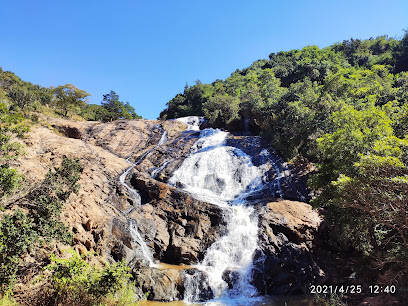
Regina Mundi Parish
Visit Regina Mundi Parish in Piggs Peak, Eswatini, and immerse yourself in a serene atmosphere of faith, culture, and community connection.
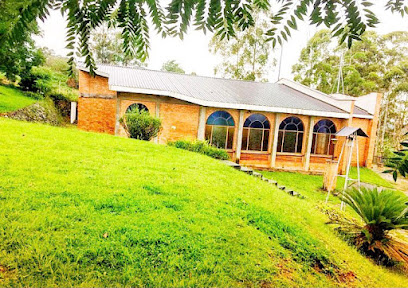
Unmissable attractions to see
Mlilwane Game Sanctuary
Explore the natural wonders of Mlilwane Game Sanctuary, a premier destination for wildlife enthusiasts and nature lovers in Eswatini.
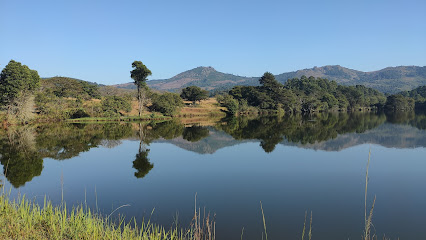
Makhonjwa Lebombo View - Barberton Makhonjwa Mountains World Heritage Site
Explore the breathtaking vistas and ancient geological wonders of Makhonjwa Lebombo View, a highlight of the Barberton Makhonjwa Mountains World Heritage Site.

Swaziland National Museum
Explore the Swaziland National Museum and immerse yourself in the rich cultural heritage of Eswatini through captivating exhibits and stories.
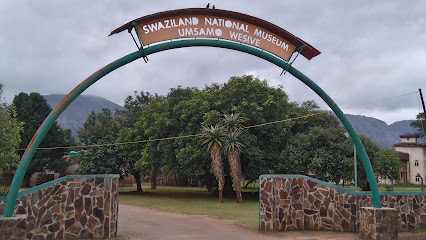
Mkhaya Game Reserve
Explore the stunning landscapes and rich wildlife of Mkhaya Game Reserve, a premier nature preserve in Eswatini dedicated to conservation and adventure.
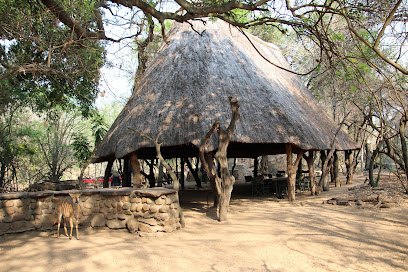
Hawane Nature Reserve
Explore the tranquility and natural beauty of Hawane Nature Reserve, a hidden gem in Eswatini for nature lovers and adventure seekers.
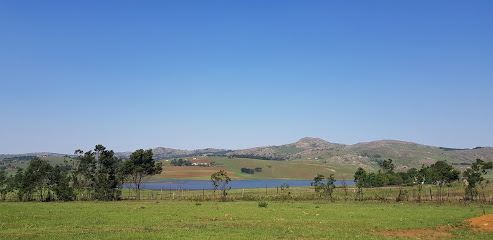
Bhubesi Camp
Discover the breathtaking beauty of Bhubesi Camp in Eswatini, where adventure and nature unite for an unforgettable getaway.
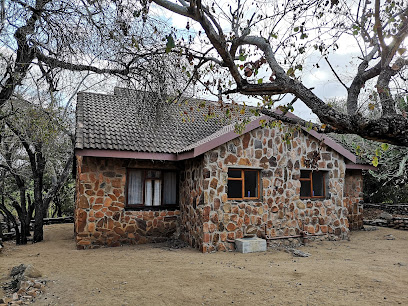
Somhlolo Park (Jubilee Park)
Experience the tranquility of Somhlolo Park, a serene green space in Manzini, Eswatini, perfect for relaxation and outdoor activities.
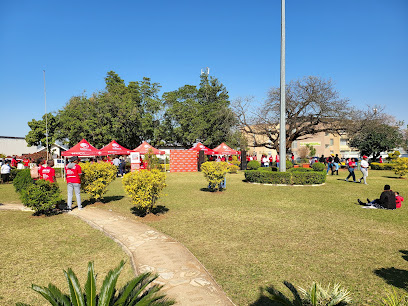
Malolotja Nature Reserve
Uncover breathtaking landscapes and rich wildlife at Malolotja Nature Reserve, Eswatini's premier destination for nature and adventure enthusiasts.
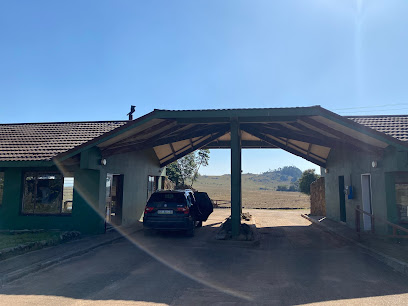
Graystone Eco Park
Explore the natural beauty of Graystone Eco Park in Mbabane, Eswatini, a serene nature preserve perfect for outdoor enthusiasts and families alike.
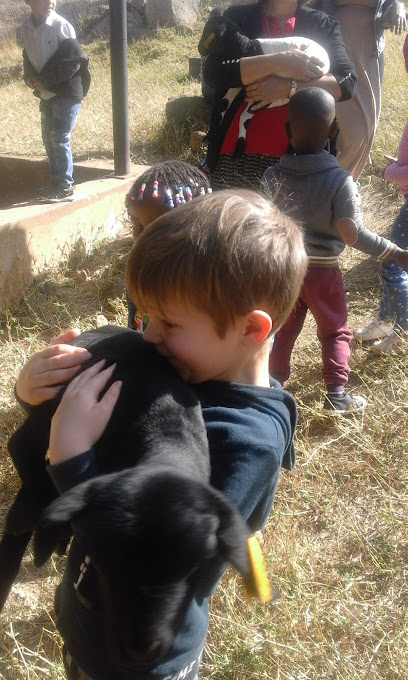
Mdzimba Mountain, Eswatini
Explore Mdzimba Mountain, Eswatini's stunning natural landmark, offering breathtaking views and unique hiking adventures for all nature lovers.
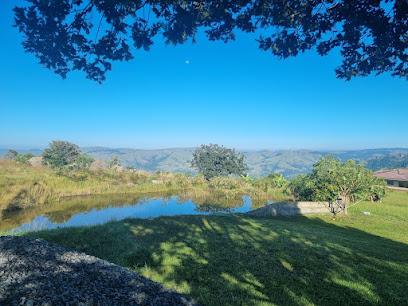
Selection Park
Experience the serene beauty of Selection Park in Mbabane, Eswatini, where nature meets tranquility for an unforgettable escape.

Mbabane
Discover the hidden tranquility of Mbabane, a picturesque park in Eswatini, perfect for relaxation, exploration, and reconnecting with nature.
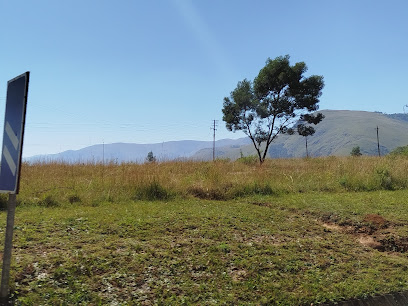
Millennium Park
Discover the tranquil beauty of Millennium Park in Manzini, a perfect retreat for relaxation, picnics, and cultural experiences amid stunning landscapes.
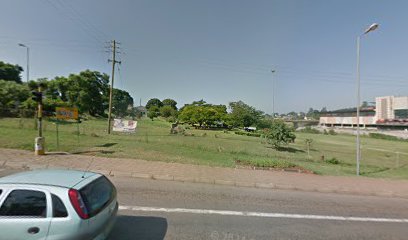
Malkens Waterfall
Discover the serene beauty of Malkens Waterfall in Luyengo, Eswatini – a perfect escape into nature's enchanting embrace.
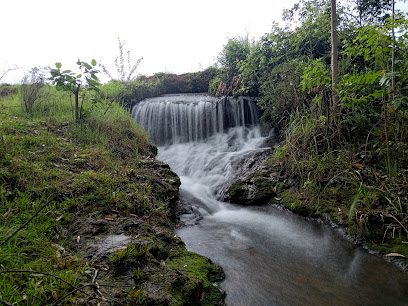
Kumethula Community Development NPC
Immerse yourself in local culture and community initiatives at Kumethula Community Development NPC in Eswatini, a unique tourist attraction.

Essential places to dine
Sibebe Rock Spur
Discover the best steakhouse experience at Sibebe Rock Spur in Mbabane - where flavor meets tradition.
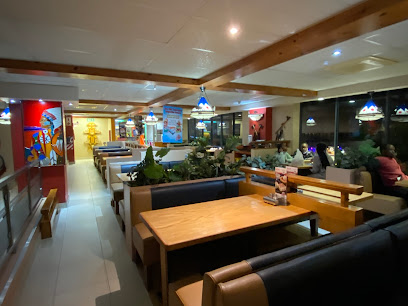
Luxy Garden Resturant
Experience authentic Chinese cuisine in the heart of Lobamba at Luxy Garden Restaurant - a delightful blend of flavors and culture.
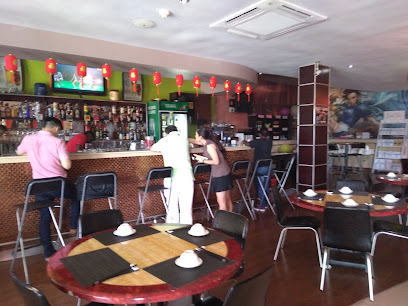
KFC Eswatini Piggs Peak
Savor delicious fried chicken at KFC Eswatini Piggs Peak - where fast food meets local charm in stunning surroundings.
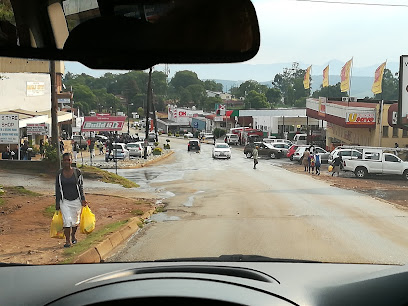
Piggs Peak Club
Discover exquisite flavors at Piggs Peak Club - where local cuisine meets stunning views in beautiful Eswatini.
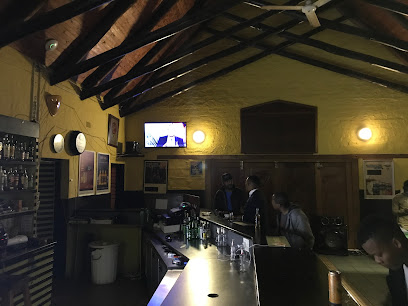
Markets, malls and hidden boutiques
Sunset View Guest House
Discover peace and beauty at Sunset View Guest House, an idyllic bed & breakfast in the heart of Eswatini's stunning landscapes.

Piggs Peak Boxer Superstores
Discover local flavors and essentials at Piggs Peak Boxer Superstores, your vibrant grocery destination in Eswatini.
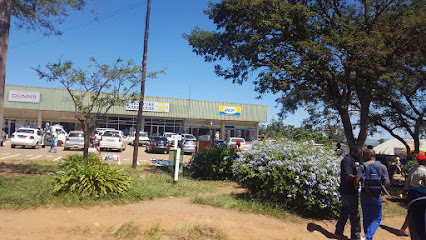
Shoprite Piggs Peak
Discover the vibrant flavors of Eswatini at Shoprite Piggs Peak, where local ingredients meet convenience in a welcoming atmosphere.
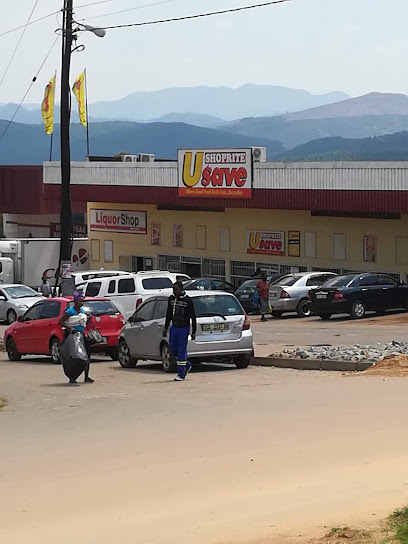
Buy Cash Hardware
Explore Buy Cash Hardware in Piggs Peak for all your home improvement needs, featuring quality tools and local craftsmanship.
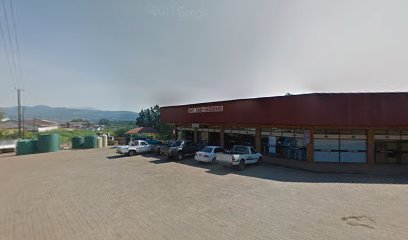
Usave Piggs Peak
Discover the local flavors of Eswatini at Usave Piggs Peak, your premier grocery store and deli in the heart of Piggs Peak.
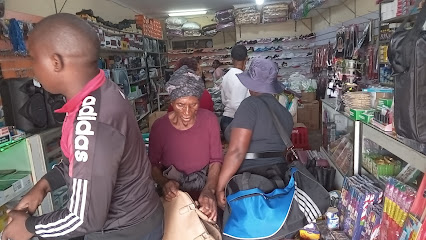
Piggs Peak Plaza
Explore Piggs Peak Plaza, Eswatini's premier shopping destination, offering unique souvenirs, local cuisine, and a taste of vibrant culture.
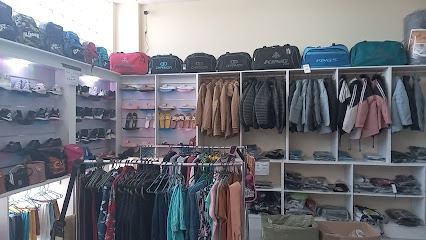
Regina Mundi Parish
Immerse yourself in the serene beauty and cultural richness of Regina Mundi Parish in Piggs Peak, Eswatini, a peaceful Catholic church surrounded by stunning landscapes.
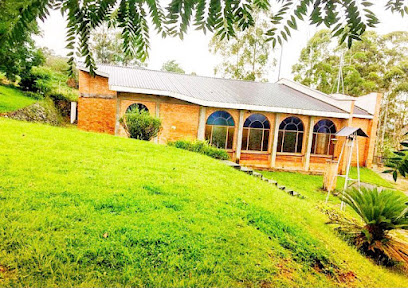
OK Furniture Piggs Peak
Explore quality furniture and local craftsmanship at OK Furniture, a hidden gem in the heart of Piggs Peak, Eswatini.

Aricka cosmatic and sound
Explore the vibrant blend of beauty and sound at Aricka Cosmetic and Sound in the scenic town of Piggs Peak, Eswatini.
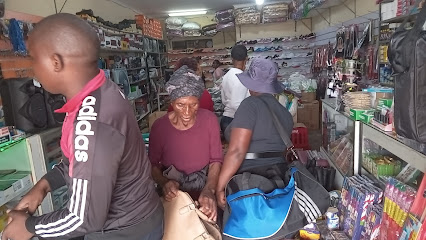
New Prime Bottle Store
Explore the vibrant beverage selection at New Prime Bottle Store in Piggs Peak, Eswatini, where quality meets local charm.
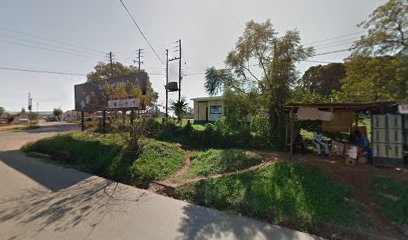
PEP Piggs Peak
Explore PEP Piggs Peak for stylish, affordable clothing in Eswatini, catering to men, women, and children in a welcoming shopping environment.

Mashiphisa supermarket
Experience the vibrant culture of Eswatini at Mashiphisa Supermarket, your gateway to local flavors and fresh produce in Piggs Peak.
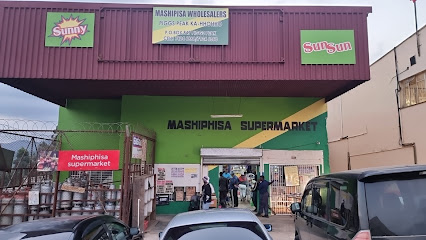
Build it Piggs Peak
Discover quality materials and expert services at Build it Piggs Peak, your essential stop for home improvement in Eswatini.

Impilo Yakusasa
Experience the vibrant shopping atmosphere of Impilo Yakusasa in Piggs Peak, where local culture meets modern retail in a beautiful setting.
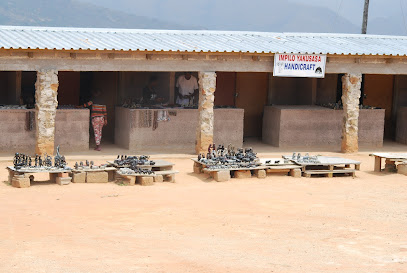
Payless Stores
Explore Payless Stores in Eswatini for trendy, affordable clothing that suits every style and occasion, making fashion accessible to all.
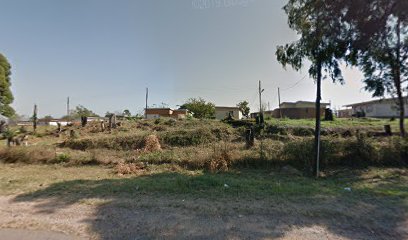
Essential bars & hidden hideouts
Solanis
Savor the authentic flavors of Eswatini at Solanis, the ultimate grill destination in Mbabane, where culinary excellence meets a vibrant atmosphere.
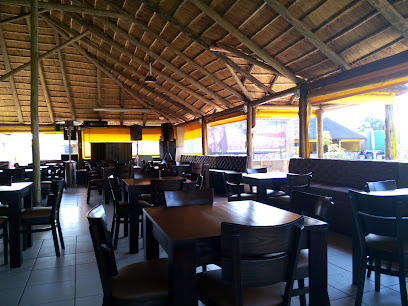
The Albert Millin
Experience the lively spirit of Eswatini at The Albert Millin, a charming pub in Mbabane with great drinks and a welcoming atmosphere.
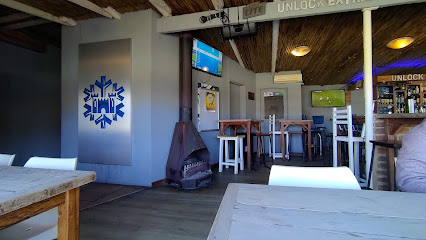
RON-DEH-VOO
Experience the vibrant atmosphere of RON-DEH-VOO, a must-visit pub in Mbabane, offering local brews, live music, and a taste of Eswatini culture.
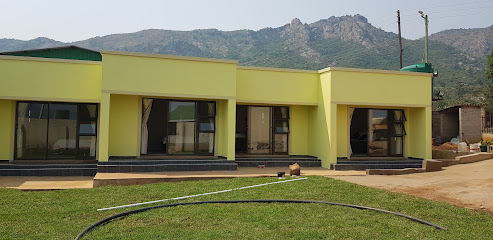
Piggs Peak Club
Experience the essence of Eswatini at Piggs Peak Club, where local flavors and warm hospitality come together in a breathtaking setting.
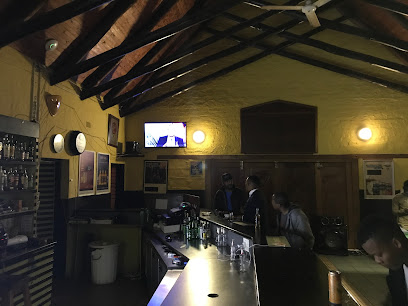
Cozy Corner Bar
Discover the vibrant atmosphere and delightful drinks at Cozy Corner Bar in Mbabane, the perfect spot for relaxation and socializing during your travels.
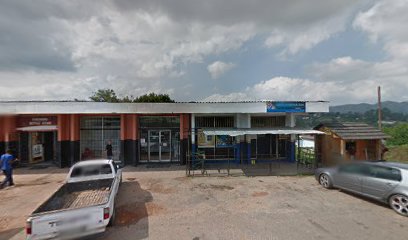
Highlands Inn Hotel
Discover the serene Highlands Inn Hotel in Piggs Peak, Eswatini, your gateway to stunning landscapes and cultural experiences.

O'Reilly's Bar
Experience the warm hospitality and cozy ambiance of O'Reilly's Bar in the heart of Mbabane, the perfect spot for relaxation and socializing.
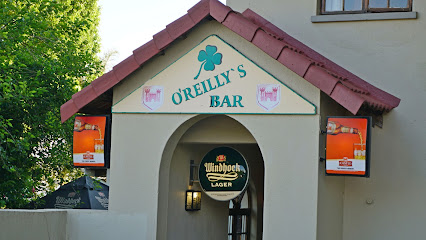
The Pit Stop Bottle Store & Bar
Experience the vibrant atmosphere of The Pit Stop Bottle Store & Bar in Mbabane, where local culture meets a refreshing selection of drinks.
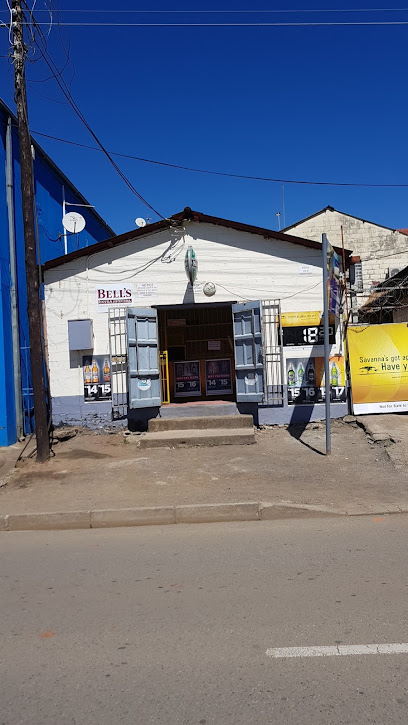
The View Lounge
Experience tranquility and breathtaking views at The View Lounge in Mbabane, where relaxation meets local flavor in a serene setting.
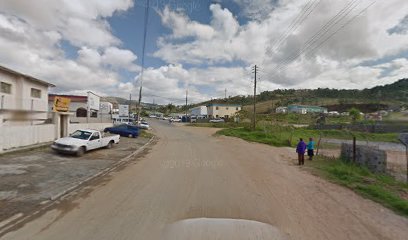
Game On
Experience the vibrant nightlife of Mbabane at Game On, where great drinks and live entertainment await in a welcoming atmosphere.
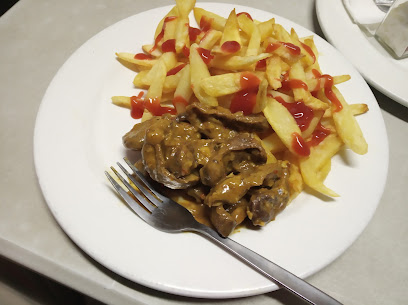
Sun Valley Blues
Experience the best of Eswatini's grill cuisine at Sun Valley Blues, Lobamba's favorite spot for delicious food and vibrant atmosphere.
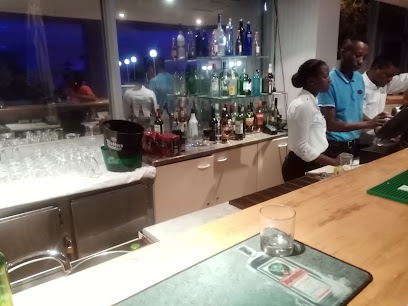
KamChoza Bar & Restaurant
Discover the lively spirit of Lobamba at KamChoza Bar & Restaurant, where local culture meets vibrant nightlife in a cozy setting.
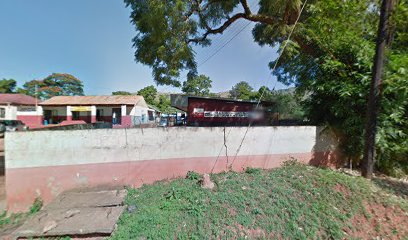
Hot Spot Lounge & Bar
Discover the lively atmosphere and delicious drinks at Hot Spot Lounge & Bar in Tjaneni, Eswatini – your go-to spot for unforgettable nightlife.

Buntu Bar & Bottle store
Discover the lively spirit of Eswatini at Buntu Bar & Bottle Store, where great drinks and a warm atmosphere await all visitors.

The View Pub
Discover the lively atmosphere and local brews at The View Pub in Mbabane, the perfect spot for relaxation and entertainment.
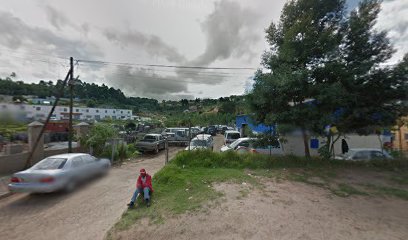
Local Phrases about Piggs Peak
-
- HelloSawubona
[Sah-woo-boh-nah] - GoodbyeHamba kahle
[Hahm-bah kah-hleh] - YesYebo
[Yeh-boh] - NoCha
[Chah] - Please/You're welcomeNgiyacela/Yebo
[Ngee-yah-cheh-lah/Yeh-boh] - Thank youNgiyabonga
[Ngee-yah-bohn-gah] - Excuse me/SorryUxolo
[Oo-hoh-loh] - How are you?Unjani?
[Oon-jah-nee?] - Fine. And you?Ngiyaphila. Wena?
[Ngee-yah-pee-lah. Weh-nah?] - Do you speak English?Ukhuluma isiNgisi?
[Oo-hoo-loo-mah ee-see-ngi-see?] - I don't understandAngifuni kuwazi
[Ahn-gee-foo-nee koo-wah-zee]
- HelloSawubona
-
- I'd like to see the menu, pleaseNgicela ukubona imenyu, ngiyacela
[Ngee-cheh-lah oo-koo-boh-nah ee-mehn-yoo, ngee-yah-cheh-lah] - I don't eat meatAnginakudla inyama
[Ahn-gee-nah-koo-dlah ee-nyah-mah] - Cheers!Ongakhalela!
[Ohn-gah-khah-leh-lah!] - I would like to pay, pleaseNgicela ukulipha
[Ngee-cheh-lah oo-koo-lee-pah]
- I'd like to see the menu, pleaseNgicela ukubona imenyu, ngiyacela
-
- Help!Usizo!
[Oo-see-zoh!] - Go away!Hamba!
[Hahm-bah!] - Call the Police!Vula ipulazi!
[Voo-lah ee-poo-lah-zee!] - Call a doctor!Vula umkhatsi!
[Voo-lah oom-khah-tsee!] - I'm lostNgikhohlwe
[Ngee-khoh-khlew-eh] - I'm illNgisemuhla
[Ngee-seh-moo-hlah]
- Help!Usizo!
-
- I'd like to buy...Ngicela ukuthenga...
[Ngee-cheh-lah oo-koo-teh-ngah...] - I'm just lookingNgikhuluma nje
[Ngee-khoo-loo-mah nje] - How much is it?Kuyacela kunqoba?
[Koo-yah-cheh-lah koo-n-goh-bah?] - That's too expensiveKulula kakhulu
[Koo-loo-lah kah-khoo-loo] - Can you lower the price?Ungayeka isilinganiso?
[Oo-ngah-yeh-kah ee-see-lee-n-gah-nee-so?]
- I'd like to buy...Ngicela ukuthenga...
-
- What time is it?Ngicela kuyini manje?
[Ngee-cheh-lah koo-yee-nee mahn-jeh?] - It's one o'clockKuyakhula manje
[Koo-yah-khoo-lah mahn-jeh] - Half past (10)Kuyakwati (10)
[Koo-yah-kwah-tee (10)] - MorningEkuseni
[Eh-koo-seh-nee] - AfternoonEmva kwesontweni
[Ehm-vah kweh-sohn-tweh-nee] - EveningEkugcineni
[Eh-koo-gci-neh-nee] - YesterdayIzolo
[Ee-zoh-loh] - TodayNamuhla
[Nah-moo-hlah] - TomorrowKusasa
[Koo-sah-sah] - 1Kunye
[Koo-nyeh] - 2Kubili
[Koo-bee-lee] - 3Kuthathu
[Koo-tah-too] - 4Kune
[Koo-neh] - 5Kuhlanu
[Koo-hlah-noo] - 6Kukhona
[Koo-khoh-nah] - 7Kude
[Koo-deh] - 8Kunye Kune
[Koo-nyeh koo-neh] - 9Kukhulu
[Koo-khoo-loo] - 10Kunye Nenkulu
[Koo-nyeh n-ehn-koo-loo]
- What time is it?Ngicela kuyini manje?
-
- Where's a/the...?Kuze kubonakala...
[Koo-zeh koo-boh-nah-kah-lah...] - What's the address?Kuyini i-adresi?
[Koo-yee-nee ee-ah-dreh-see?] - Can you show me (on the map)?Ungangibonisi (emephu)?
[Oo-ngah-ngih-boh-nee-see eh-meh-poo?] - When's the next (bus)?Kuyini ibhasi elilandelayo?
[Koo-yee-nee ee-bhah-see eh-lee-lahn-deh-lah-yoh?] - A ticket (to ....)Itikiti (ku ....)
[Ee-tee-kee-tee (koo ....)]
- Where's a/the...?Kuze kubonakala...
History of Piggs Peak
-
In the late 19th century, European settlers discovered gold in the area now known as Piggs Peak. This discovery attracted a wave of prospectors and miners, leading to the establishment of one of the earliest gold mines in Eswatini. The gold rush was short-lived, but it left a lasting impact on the local economy and development of the region.
-
Piggs Peak was named after an early prospector named William Pigg, who established the town during the gold rush. The settlement quickly grew into a bustling mining town, with infrastructure and amenities springing up to support the influx of miners and their families.
-
By the early 20th century, the gold deposits in Piggs Peak had been largely exhausted. The decline of gold mining led to economic challenges for the town. However, the community adapted by shifting focus to other industries, including forestry and agriculture, ensuring the town’s survival and continued growth.
-
The colonial era left a distinct architectural legacy in Piggs Peak, with several buildings reflecting European styles. Structures such as the old mining offices and colonial-era homes provide a glimpse into the town's past and the influence of British and other European settlers.
-
The local Swazi culture remains a vibrant and integral part of Piggs Peak. Traditional ceremonies, dances, and festivals are regularly held, showcasing the rich cultural heritage of the Swazi people. The Umhlanga (Reed Dance) and Incwala (First Fruits Ceremony) are notable events that attract visitors and highlight the deep-rooted traditions of the area.
-
As gold mining waned, Piggs Peak found new economic strength in the forestry industry. The town became a hub for timber production, with vast plantations of pine and eucalyptus trees. The forestry industry provided jobs and revitalized the local economy, playing a crucial role in the town’s development throughout the 20th century.
-
Today, Piggs Peak is a blend of historical charm and modern amenities. The town offers a range of activities for visitors, from exploring the scenic landscapes of the surrounding highlands to visiting historical sites and experiencing the local culture. Modern Piggs Peak continues to evolve while preserving its unique historical and cultural identity.
Piggs Peak Essentials
-
Piggs Peak is located in the northern part of Eswatini. The nearest international airport is King Mswati III International Airport in Manzini, approximately 120 kilometers away. From Manzini, you can take a taxi or rent a car to reach Piggs Peak. The journey by road typically takes around 1.5 to 2 hours. Alternatively, you can take a bus from Manzini to Piggs Peak, which offers a more affordable travel option.
-
Piggs Peak is a small town, and many of its attractions are within walking distance. For longer trips within the region, local taxis are available and relatively inexpensive. Public minibuses, known locally as kombis, operate within the town and connect to nearby areas. Renting a car is also a convenient option if you wish to explore the surrounding areas at your own pace.
-
The official currency in Eswatini is the Swazi Lilangeni (SZL), which is pegged to the South African Rand (ZAR). Credit cards are accepted in some hotels, restaurants, and larger shops in Piggs Peak, but it is advisable to carry cash, especially in smaller establishments and rural areas. ATMs are available in Piggs Peak, but ensure you have sufficient cash before traveling to more remote locations.
-
Piggs Peak is generally a safe destination for tourists. However, it is advisable to take standard precautions. Avoid walking alone at night in unfamiliar areas and keep an eye on your belongings in crowded places. While Piggs Peak does not have specific high-crime areas targeting tourists, it is always best to stay vigilant and aware of your surroundings.
-
In case of emergency, dial 999 for immediate assistance. The local police station and medical facilities are available in Piggs Peak. It is recommended to have travel insurance that covers medical emergencies. For minor health issues, there are pharmacies in the town where you can purchase over-the-counter medications.
-
Fashion: Do dress modestly, especially when visiting religious sites. Avoid wearing revealing clothing. Religion: Do respect local customs and traditions. Always cover your head when entering churches and traditional homesteads. Public Transport: Do be respectful and give up your seat to elderly passengers. Don’t eat or drink on public transport. Greetings: Do greet people with a handshake. Using both hands is a sign of respect. Eating & Drinking: Do try local delicacies and accept food offerings graciously. Don’t refuse hospitality, as it is considered impolite.
-
To experience Piggs Peak like a local, visit the local markets where you can buy fresh produce and traditional Swazi crafts. Engage with locals, as they are often friendly and willing to share stories about the town's history and culture. Don't miss visiting the nearby Phophonyane Falls Nature Reserve for beautiful hiking trails and the chance to see local wildlife. For a unique experience, participate in a traditional Swazi dance or cultural event if one is taking place during your visit.
Nearby Cities to Piggs Peak
-
Things To Do in Mhlume
-
Things To Do in Manzini
-
Things To Do in Nelspruit
-
Things To Do in Malkerns
-
Things To Do in Big Bend
-
Things To Do in Matola
-
Things To Do in Maputo
-
Things To Do in Polokwane
-
Things To Do in Pretoria
-
Things To Do in Johannesburg
-
Things To Do in Mokhotlong
-
Things To Do in Butha-Buthe
-
Things To Do in Durban
-
Things To Do in Leribe
-
Things To Do in Thaba-Tseka





